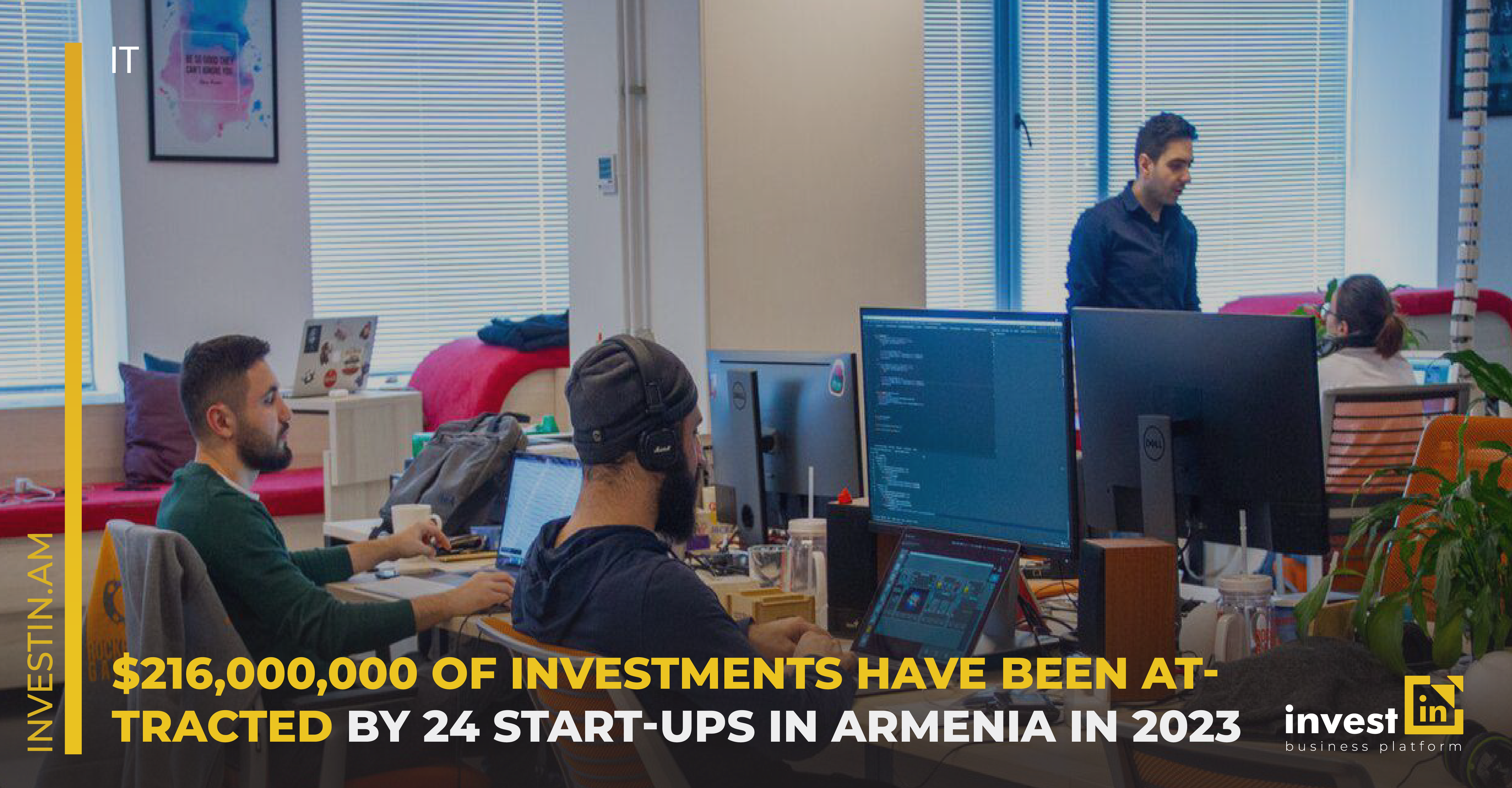Armenian founders showcased true resilience and adaptability in 2023, announcing a total of $216M in investments. The year posed significant challenges for Armenia, impacting its startup ecosystem. It wasn't just a challenging period for us; globally, there was a noticeable reduction in VC deals. Consequently, investors now conduct more thorough due diligence, elongating the investment decision-making process. Moreover, the cost of capital is on the rise, leading to reduced valuations for startups. We have numerous founders establishing startups both domestically and globally. Strong connections between Homeland and Diaspora underscore how the success of startups with Armenian founders significantly benefits the Armenian ecosystem. This impact is twofold: directly, through the establishment of R&D teams in Armenia, and indirectly, as Armenian founders maintain active connections with their homeland, offering their network, knowledge, and advisory support.
To assess the performance of the Armenian startup landscape, 3N tracked investment announcements within both the Armenian ecosystem and startups with Diaspora Armenian founders. For ease of reference, we'll refer to Armenia-born startups and startups with Diaspora Armenian founders collectively as "Armenian Startups." In total, Armenian Startups announced 24 deals, securing a capital raise of $216M. Notably, 82% of this capital was secured by startups with Diaspora Armenian Founders (7 deals). The lion's share came from Gecko Robotics, securing $100M in Series C capital, led by Co-Founder & CEO Jake Loosararian.

Armenia-born startups raised $27M, primarily closing pre-seed and seed rounds. Among these, Zero Systems stands as the sole Series A startup that announced an investment. It's heartening to note that Armenian investors (VC firms and Angel Networks) collectively announced investments of $3M. Yet, the actual investment is likely higher, given undisclosed deal amounts.
However, it's apparent that the performance of local incubation and pre-acceleration programs has room for improvement. Presently, only two incubation programs—EPIC AUA and TUMO Labs—are active in Armenia, with others on pause. Furthermore, the absence of graduates from these programs among the top Armenia-born startups underscores that success stems from the founders' talent and a strong Diaspora. Looking ahead, a more strategic and structured approach from the Armenian startup ecosystem in developing relations with the Diaspora is encouraged. The Armenian Diaspora can be instrumental in positioning Armenia as a regional startup hub, extending support not only to Armenian startups but also to regional startups from neighboring countries like Georgia, Kazakhstan, Russia, Ukraine, and Moldova. This approach could significantly elevate Armenia's status as a regional startup hub.
Additionally, seeing more Armenian enterprises launch venture-building programs and actively engage with the local startup ecosystem will contribute to a growing pool of Armenian high-tech innovations applied within the country's industries. Ultimately, synergy and cooperation across all the actors in the educational system, research community, startup ecosystem, enterprises, and the Government will pave the way for groundbreaking innovations and elevate the performance of the Armenian startup ecosystem.
We hope to see more investment announcements, programs launched and impactful cooperation formed in the coming 2024. We wish the Armenian founders to stay strong, resilient and energetic to contribute their talent to rebirth of our homeland.
